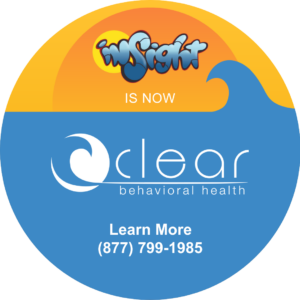Author: Julia May, LMFT
The COVID-19 pandemic has driven up anxiety due to lost jobs, economic uncertainty, and growing demands at work and home. As a result, we have seen a worsening in dangerous drug and alcohol use as a coping mechanism for these uncomfortable feelings of stress, anxiety, boredom, and depression. In fact, the CDC reported that there was a 31% increase in drug and alcohol-related deaths since 2023. The physical isolation from lockdown procedures had also made it difficult for those with treated substance use disorders to attend support group meetings in person and make meaningful connections with their community.
These are a few factors that have contributed to a steep rise in detox admissions, however, there is still an unmet treatment need for a lot of people struggling with substance use.
What Are the New Drug and Alcohol Trends?
Drug and alcohol misuse is on the rise, and with the advent of new and dangerous synthetic drugs on the streets it is important to know the trends
- Fentanyl and Fentanyl-Laced Drugs
- Many college-aged youths are coming in after using pressed fentanyl pills. We are also seeing an increased number of clients who are unaware that fentanyl is in their system. This supports the case that many illicit drugs are being laced or totally substituted with this highly addictive substance to drive addiction and attract repeat buyers. We need to remain more vigilant than ever regarding the identification and treatment of clients with opioid use disorders.
- Alcohol
- Over the past two years, there has been a dangerous increase in alcohol consumption and alcohol-related deaths. Research is pointing towards pandemic-related stressors, lockdowns, flexible work-from-home policies, and disrupted treatment access as possible contributing factors to using alcohol as a coping mechanism.
- Marijuana
- While legal or decriminalized in many states, Marijuana has a misleading reputation for being harmless. Chronic users of Marijuana, representing 10% of all users, can develop a diagnosable mental dependency. Cessation after chronic use can lead to serious withdrawal symptoms requiring medical intervention, and when paired with therapy, can increase the chances of long-term abstinence.
- Benzodiazepines and Stimulants
- Many of our younger clients who were abusing benzos or methamphetamines report that their abuse stemmed from prescription anxiety and ADHD medication, respectively.
In-Network Detox at Clear Behavioral Health
Clients come into Clear Detox feeling defeated, hopeless, helpless, depressed, and disconnected from life. They are unable to stop using drugs and/or alcohol on their own. More often than not a family member or friend has been the bridge connecting a client to substance abuse treatment.
There is no such thing as a “one-size-fits-all” treatment for dual-diagnosis and drug and alcohol use disorders. Each individual comes into treatment with their own set of circumstances such as type of addiction, mental health diagnosis, medical and treatment history, family and social dynamics, behaviors, and more. This requires a treatment and aftercare plan that addresses each of these factors individually and is conducive to long-lasting recovery.
Only minutes from the beach, Clear’s Dual-Diagnosis program offers a safe and welcoming environment in Los Angeles. Our compassionate and experienced clinical staff integrate wellness of the body, mind, and heart into the daily lives of clients to help them free themselves from the grip of addiction and teach them healthy and adaptable coping mechanisms.
Clients are welcomed into an intimate residential setting with 24/7 medical professionals to support the acute withdrawal of drugs and alcohol during the detox phase of treatment. Clients are provided with weekly psychiatry, individual therapy, and case management sessions with their dedicated care team. Daily group sessions focus on treating both drug and/or alcohol addiction and mental health including relapse prevention, meditation, art therapy, and 12-step meetings. During their stay, therapists and case managers work with each client in creating an aftercare plan that includes housing arrangements and outpatient treatment so that once they discharge from the detox, they seamlessly step down into a lower level of care.
Coordination of Care
Once a client admits, the assigned case manager calls the family with daily updates for the first four days, then every 3 days thereafter. The dedicated case manager and therapist become the main points of contact for families and loved ones.
Referring providers also receive updates on a weekly basis, or at their preferred cadence.
Interested in Learning More?
Fill out the form below or call 877 799-1985 to speak with a member of our care team.

